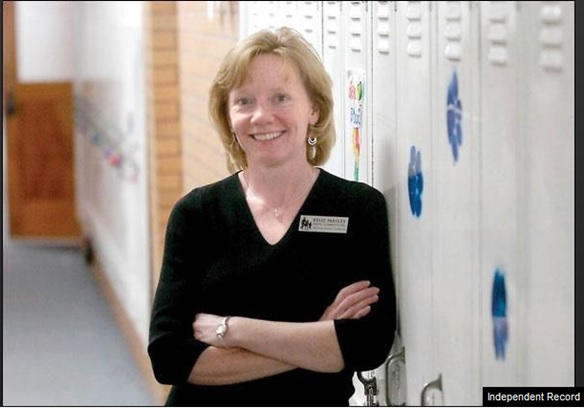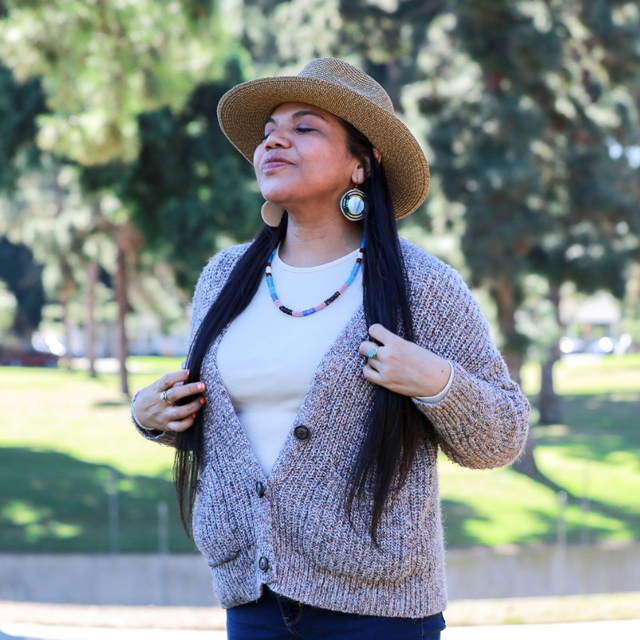Parsley Received Award

Most sexual assault victim advocates last three to five years on the job, but Carroll College Professor Kelly Parsley has been at it for almost 20 years.
“If you know a victim or someone who survives sexual violence, you know this incredibly strong, heroic person,” Parsley said. “She didn’t think she could live through the nightmare; she didn’t know the nightmare would end … She chose to survive and she made it past. It’s like being around heroes, and I love that part of my work.”
On Wednesday, Parsley is going to be presented the Visionary Voice Award, an annual award given to recipients across the country who have “demonstrated outstanding work to end sexual violence,” according to the National Sexual Violence Resource Center website.
Parsley is receiving the award at the annual conference of the Montana Coalition Against Domestic and Sexual Violence, taking place Wednesday and Thursday at the Great Northern Hotel.
The conference tackles a different subject each year, spotlighting in recent years secondary trauma and the access LGBT people have to services. This year the conference is highlighting sexual violence.
“Montana has been in the news for the last couple years regarding sexual assault and we wanted to take the opportunity to talk about the work we're already doing,” MCADSV Executive Director Kelsen Young said.
The conference will feature talks from several national experts and workshops discussing sexual assault within the detention system, sexual assault advocacy, survivor rights and a variety of other topics.
In line with the conference subject, this is the first year the Visionary Voice Award has been given out in Montana, and Young said Parsley was the clear choice.
“Kelly’s one of those people that not only is a leader in Montana but is one of the handful of leaders nationally who is really known and respected for her work,” Young said.
Parsley got her start in the field of sexual assault prevention in 1996, when she received grant funds to do a campus assessment, work as a victim advocate and educate students on bystander prevention.
Over the last 19 years, Parsley said she doesn’t think the issue of sexual assault and violence on college campuses has changed, it’s just become more prevalent subject in the national rhetoric.
“It’s come quite far just in the number of people who see the problem and are willing to be part of the solution,” she said.
Parsley also works on prevention at a state level, helping Montana manage the federal funds allocated for rape prevention and education. The roughly $100,000 Parsley said Montana receives is plugged entirely into college campuses.
Through that work, almost all of the colleges in the state have now done campus climate surveys and all of the four-year institutions have done campus needs assessments. Though sexual assault and violence is an issue in many facets of society, Parsley said spending those dollars on colleges gives the state the biggest payoff for its investment.
“If we do it right on the college campus, those students move out into communities and hopefully change the climate wherever they go,” she said.
For the last four years Parsley has been the voice of about 20 rural states on the Center for Disease Control’s rape prevention education stakeholder group.
This spring, she was named as one of 38 people to serve on the White House Think Tank on sexual violence prevention.
Parsley said she is optimistic that the country can eliminate sexual assault.
“I totally believe it can happen…” Parsley said. “I believe there will always be people on this planet who want to harm others, I also believe we have communities that can limit that damage.”
One of the most prevalent myths that needs to be eradicated is the idea that the victim of sexual assault somehow brought it on themselves, Parsley said.
“We need to stop blaming victims,” she said.
She said research has shown that at least 90 percent of rape allegations are accurately reported.
Beyond her other work, Parsley is also studying sexual assaults that have sprung from the Bakken oil boom and is working on strategies to help women in rural areas be more safe.
“If this work put me out of business I would be the happiest person on the planet,” Parsley said.
Independent Record September 07, 2015 6:00 am • ALEXANDER DEEDY
